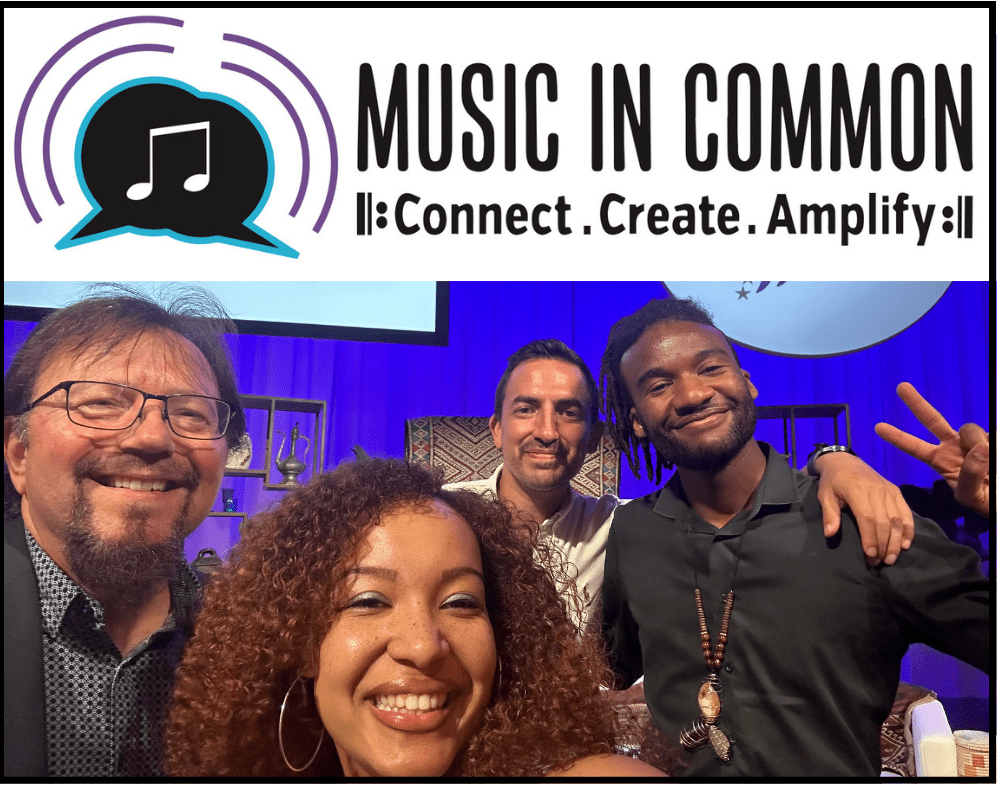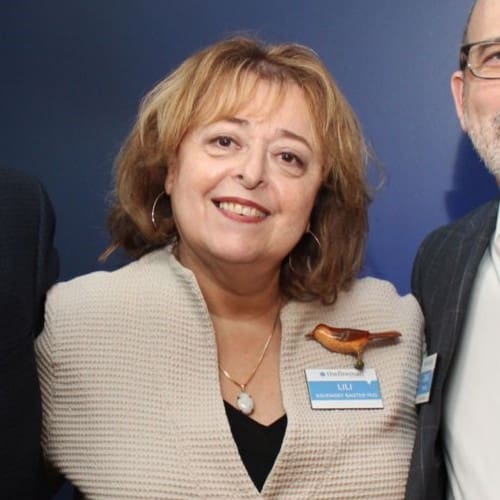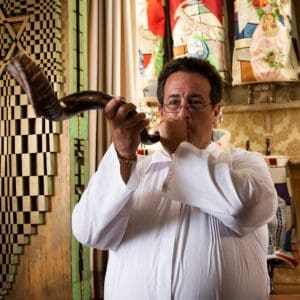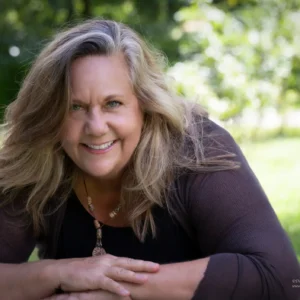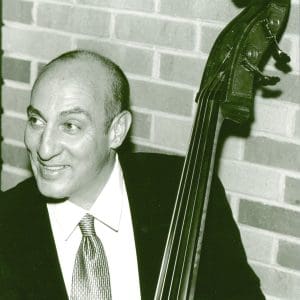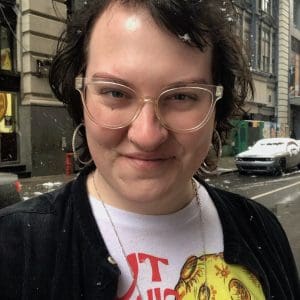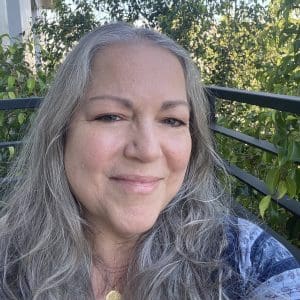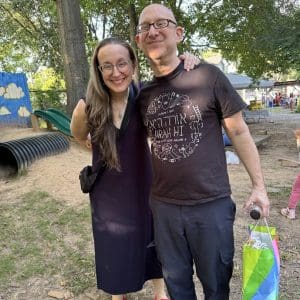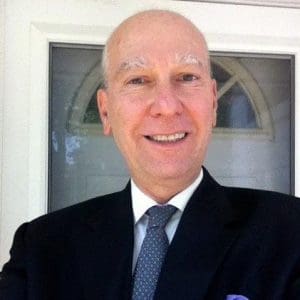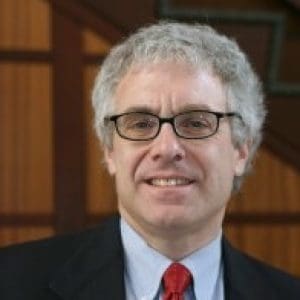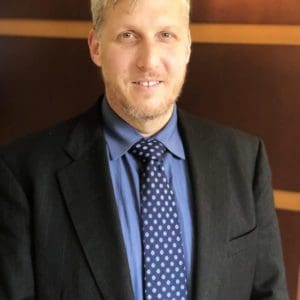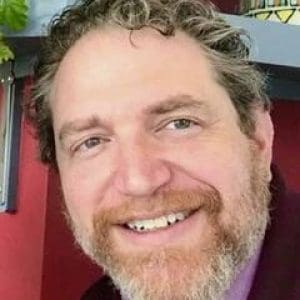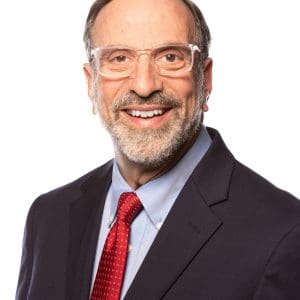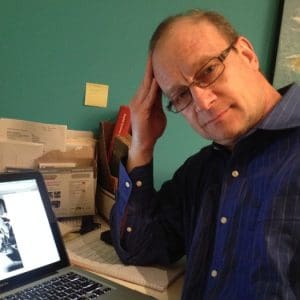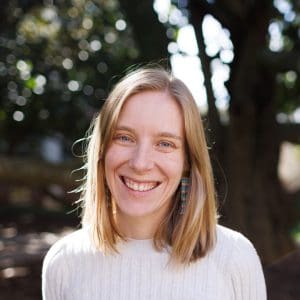A MENDED HEART
KOL NIDRE 5778
September 28, 2017
8 Tishri 5778
It was this season of the year, prior to Yom Kippur, and Levi Yitzchak of Berditchev, known for his piety and goodness, was trying to prepare himself spiritually for Yom Kippur. A traveling cobbler looking for work, approached him and asked "Have you anything to mend?" "Is there anything I need to mend?" Levi Yitzchak mused, and he wept for all the things in his life he believed needed mending, for his sins and for the teshuvah that eluded him.
I have no way of knowing what his perceived sins may have been, but Maimonides was correct that there is no person who has not sinned. Each of us knows his or her failures. For many, it is often a stubborn heart much like that of the miser in this story.
There was a man who held onto his money with a tight fist. Regardless of the nature of the request, he never gave tzedaka (charity). On one occasion, he was at a meeting and heard of the great suffering caused by a terrible flood. As he listened to the story of the ravaged homes and the many homeless, his eyes filled with tears. All present were amazed by this sight and were certain that he was about to unclench his fiat and contribute to the relief effort. When invited to announce his gift, he responded in a tear-filled voice "I really want to give, but my heart doesn't let me." His stubborn and closed heart was a persistent failure.
Persistent failures darken many lives. We try to correct them, but, alas, our heart restrains us. This all too human condition may be in our minds during Yom Kippur, the day dedicated to confession of sins and the vow to do teshuvah, to repent. We promise ourselves that we will do better, but after the shofar is sounded and we return to our homes and our daily routines, the persistent failure, like a stubborn grease spot on our clothes, just reappears.
In this, we are not alone. Levi Yitzchak also struggled with persistent failures. Every night before bed, he engaged in this soliloquy: "Levi Yitzchak I have reviewed your behavior today and you have sinned." "Yes I know, and I will not do it again." "This is what you promised last night, the night before that, many nights before that. Why will this night be any different?"' "Yes," he would reply, "I have failed many times, but tonight I really mean it."
Perhaps this nightly exercise enabled him to moderate, if not to remove a persistent behavior. What if we tried to adopt this practice?
Is it possible if, before going to bed, or at some quiet moment during the day, we engaged in this ritual of speaking candidly to ourselves about a recent outbreak of anger and promised to be more restrained in the future, and that our behavior would be different? Is it possible that one morning, when confronted with some frustration or disappointment, and as our blood began to boil, we might suddenly remember that conversation with self, and we did restrain ourselves and remained calm? And if we were able to do this a second time and a third, might this be the beginning of "mending" a stubborn heart?
Our persistent failures are all lodged within us. They testify to the quality of our character. Deep down, we know the challenge we face to mend our stubborn and closed hearts.
It's a daunting, if not virtually impossible, task. Hopefully, we can find strength and encouragement in this sage observation that while we may not complete the task, we are, nonetheless, not free to desist from it.
The Psalmist assures us that "weeping may tarry for the night, but joy comes in the morning." (Psalms 30:5)
When our lives are shrouded in darkness, may our teshuvah help transition us into a blessed morning brightened by the hoped-for mended heart.
From Jerusalem, my prayer that we all be blessed with a Shabbat Shalom and a truly spiritually uplifting Yom Kippur
—
Rabbi Arnold M. Goodman
NITZAVIM-VAYELECH 5777 ROSH HASHANAH 5778
A HUMANITY BOUND TOGETHER
September 14, 2017
23 Elul 5777
Moses, now 120, soon to depart from the scene, gathers the people together for a final oration. He exhorts them to found a just social order that reflects the Commandments he had placed before them during the past four decades. Failure or refusal to accomplish this would court disaster culminating in expulsion from the land and exile of the community.
His opening words are "Kulchem (all of you) are standing here… men and women and even the infants in your arms." (Deuteronomy 29:4) The key word, kulchem, underscores Moses' emphasis on inclusion and unity. This unity, however, dare not be a justification to marginalize and to exclude the other in their midst. Such a policy would run counter to the admonition found elsewhere in the Bible to be sensitive to – and welcoming of – the stranger.
A willingness to open its doors to immigrants from all parts of the world helped America prosper. Very few Americans thus trace their ancestry to the hardy souls who reached the New World on the Mayflower. We are a nation of immigrants and of descendants of immigrants.
Today, our sprawling population is constantly buffeted by a host of cultural norms and, at times, with conflicting value systems. Yet, the goal continues to be to foster a basic unity, to use Moses' term, that reflects kulchem.
The current debate about the status of the "Dreamers" challenges this basic American tradition. Shall these men and women, brought to this country by illegal immigrant parents, primarily from Central and South America but also from other nations, be deported? They are adults who were raised in this country. It is here that they have been educated; it is here that they have attained adulthood; it is here that they have built their careers and their lives. DACA was created to protect them from being deported and to assure them the opportunity to continue to enrich our society with their talent.
While their entry as children was illegal, shall the "sin" of their parents weigh upon them today? Their status is not merely a legal issue; it is also a moral one.
A recurrent theme in the selichot (penitential prayers) we recite during this season affirms God as compassionate and forgiving. It also underscores that people are responsible for their own sins; each of us regarded the master of his/her destiny. The "Dreamers" sadly live with the stigma of their parents' illegal entry, but our tradition is clear: they are not to be held responsible for the deeds of their parents.
During this season of soul-searching, it's appropriate to focus on our relationship with the other in our midst. Kulchem continues to be the prism through which to ask ourselves, whether consciously or subconsciously, we marginalize those who are different, those who are more vulnerable?
The other is inevitably before our eyes, and we would do well to reflect on the prayer in our High Holiday liturgy that proclaims the hope that all created by God will become an agudat achat, i.e. to be as one to do His will. This is a clarion call to broaden the kulchem in which we are comfortably ensconced, to include the other in sharing and shaping our common destiny.
—
From the holy city of Jerusalem, my best wishes for a Shabbat shalom u'mevorach, a Shabbat of peace and of blessing – and a shanah tovah u'metukah, a good and sweet year. May 5778 hold good tidings for us, for our people, and for all humanity.
Rabbi Arnold M. Goodman













